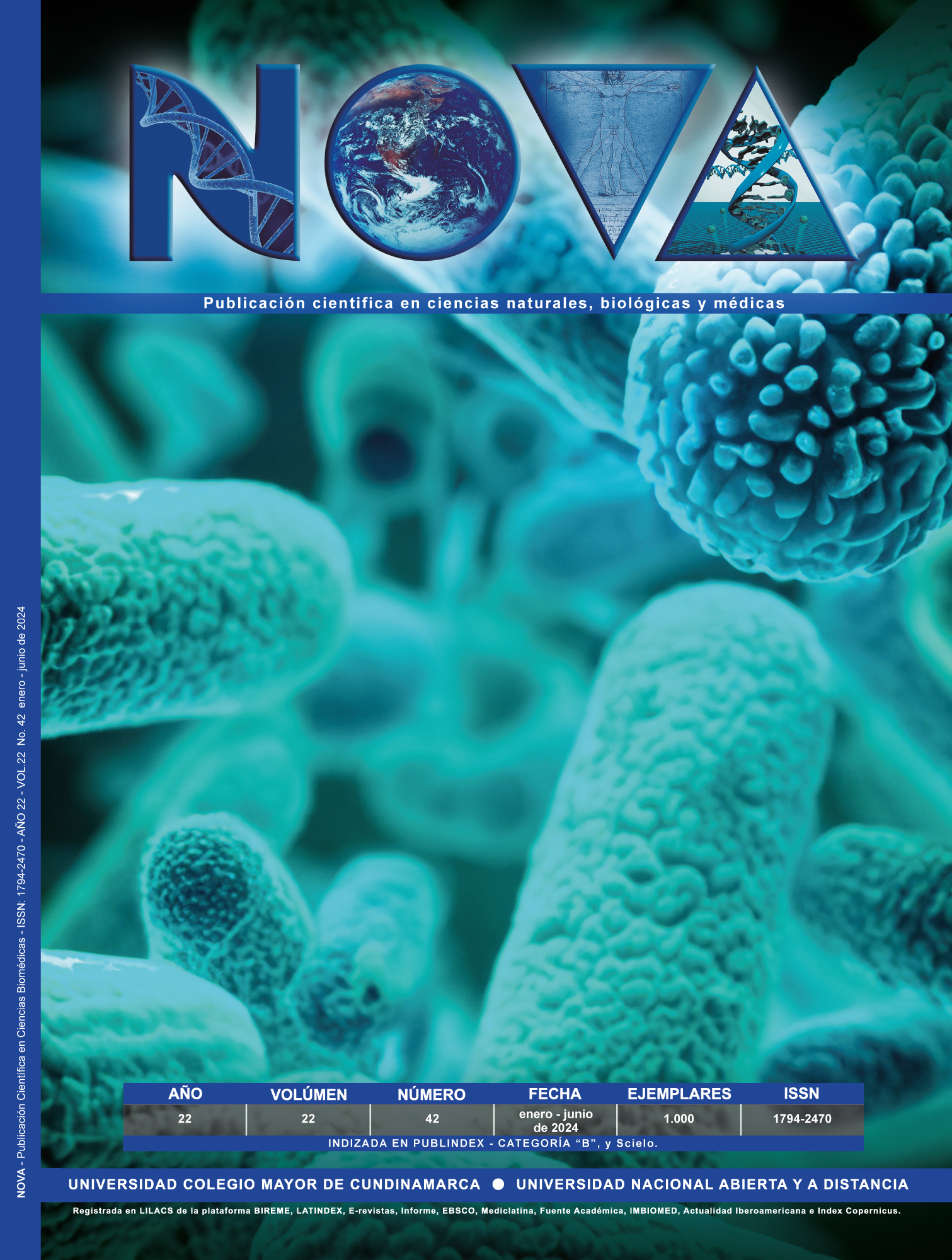Copyright (c) 2024 NOVA Biomedical Sciences Journal

This work is licensed under a Creative Commons Attribution-NonCommercial-NoDerivatives 4.0 International License.
NOVA por http://www.unicolmayor.edu.co/publicaciones/index.php/nova se distribuye bajo una licencia Reconocimiento No Comercial- Compartir igual
Así mismo, los autores mantienen sus derechos de propiedad intelectual sobre los artículos,
Declaración de privacidad.
Los nombres y las direcciones de correo electrónico introducidos en esta revista se usarán exclusivamente para los fines establecidos en ella y no se proporcionarán a terceros o para su uso con otros fines.
Identification of knowledge, attitudes and practices in feeding children with cancer in two shelters in Bogotá
Introduction: In the population diagnosed with cancer, challenges arise for their adequate nutrition, especially during treatment and in the later stages. Thus, identifying the nutritional knowledge, attitudes and practices of children and their parents during illness and treatment is very useful for proposing solutions to difficulties in feeding that may arise. Objective: Identify knowledge, attitudes and practices related to food by parents, caregivers and chil- dren with cancer in two foster homes located in Bogotá, Colombia. Methodology: For this, focus groups were carried out in which specialists, parents and children participated; in ad- dition, the questionnaire designed and validated by the Food and Nutrition Organization of the United Nations was adjusted and applied for the evaluation of knowledge, attitudes and practices in nutrition, later the data were analyzed with a software (NVivo). Results: It was found that children and guardians recognize and practice good habits for nutritional status, although for a third of them it may be difficult to comply with some of them, either due to lack of knowledge, economic condition, myths or beliefs. Conclusion: Information, educa- tion and communication interventions are required along with strategies that allow healthy eating and overcoming challenges and symptoms during illness and treatment, especially in the outpatient stage or when being discharged and returning to their homes.









